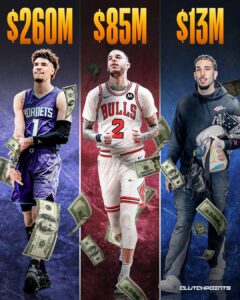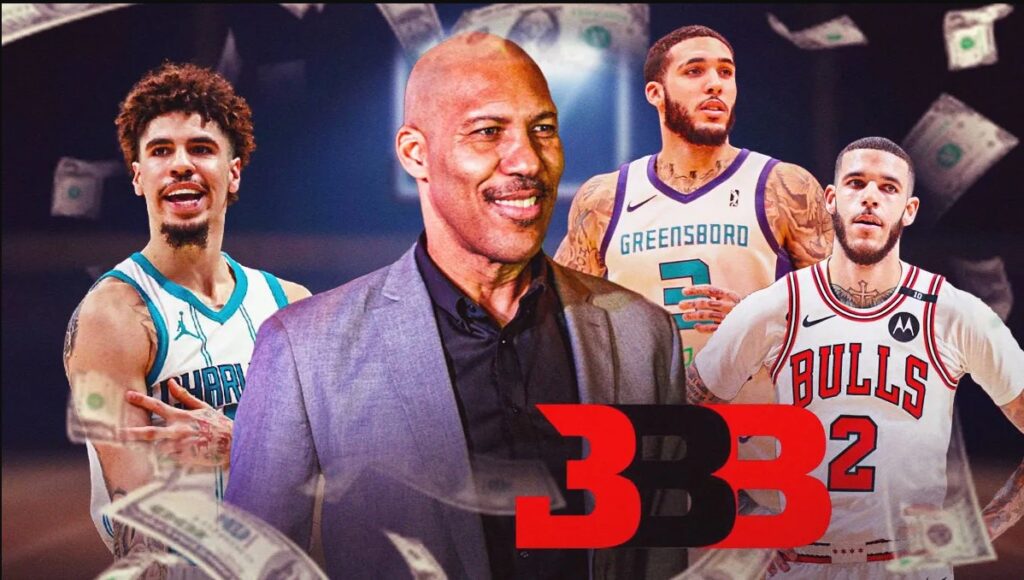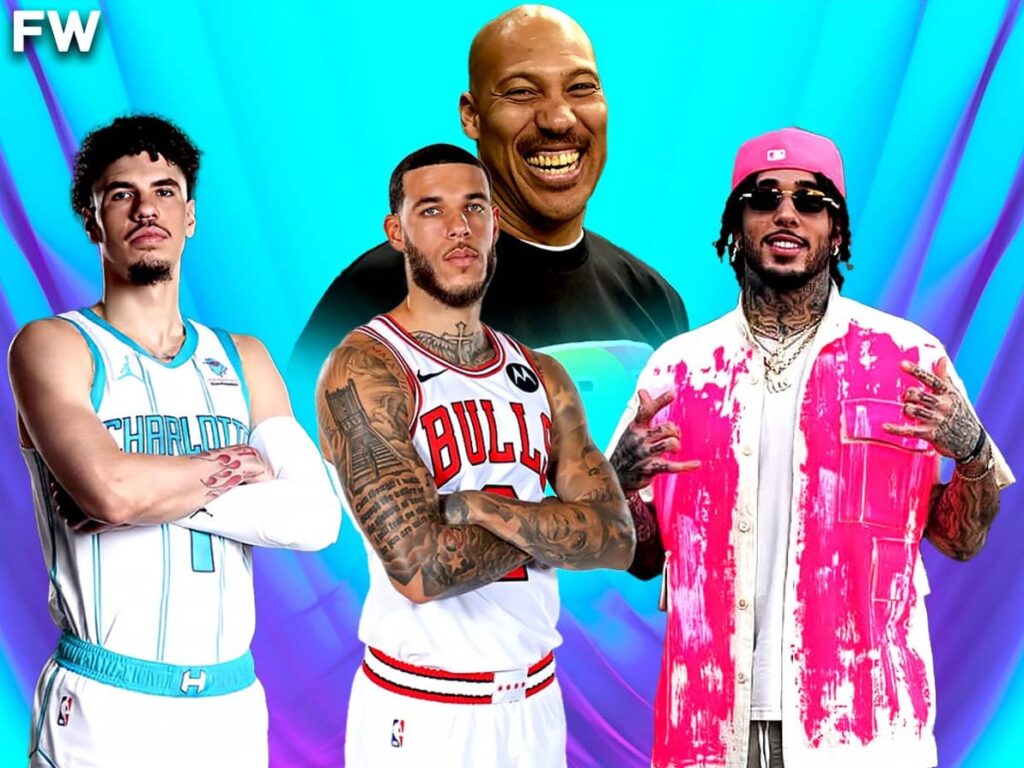One Family, Three Destinies, and Hundreds of Millions: How the Ball Family Cashed in on a Dream No One Believed In
In an era where fame often fades faster than it arrives, the Ball family has not only sustained public attention but turned their once-controversial name into a multi-pronged empire, spanning professional basketball, chart-climbing music, and generational wealth that defies conventional logic or expectation.
Back in 2016, when LaVar Ball began making bold proclamations about his sons being better than NBA legends and deserving billion-dollar sneaker deals, most people scoffed, rolled their eyes, and dismissed him as just another delusional sports dad chasing a dream that would crash under the weight of reality.

Yet, less than a decade later, LaMelo Ball, the youngest of the three Ball brothers, inked a five-year contract extension with the Charlotte Hornets that could pay him up to $260 million, a figure that instantly secured his place among the NBA’s elite earners and silenced every doubter along the way.
Despite early questions about his unorthodox path—from high school in Chino Hills to overseas stints in Lithuania and Australia—LaMelo’s skillset, court vision, and star power turned him into a franchise cornerstone and global icon before he even turned 23 years old.
Meanwhile, Lonzo Ball, once the family’s golden child and No. 2 overall pick in the 2017 NBA Draft, has managed to maintain financial security and relevance despite a string of debilitating injuries that have kept him off the court for nearly two full seasons.
His $85 million contract with the Chicago Bulls, signed via a sign-and-trade deal, might seem excessive to critics who focus solely on minutes played—but those who understand the business of sports recognize the value of branding, leadership, and the influence Lonzo still wields in the culture of basketball.
And then there’s LiAngelo Ball—the so-called “forgotten Ball”—who for years lived in the shadows of his brothers, his name often appearing in headlines only when linked to controversy, failed NBA Summer League stints, or reminders of his infamous shoplifting incident in China back in 2017.

However, in one of the most unexpected twists in modern celebrity narratives, LiAngelo has re-emerged as a formidable presence in the music industry with the viral success of his debut single “Tweaker,” a hypnotic track that caught fire on social media and eventually led to a $13 million recording deal with Def Jam.
Critics may scoff at the idea of a former basketball hopeful becoming a rap artist, but history has shown that reinvention is the true currency of modern fame, and LiAngelo’s artistic pivot reveals a level of ambition and self-awareness many had long denied him.
What makes the Ball family’s collective rise even more extraordinary is not just the individual achievements of the three brothers, but the unshakable belief of their father LaVar, who spoke their current reality into existence long before there was any data to support his wild, controversial claims.
From launching the ill-fated Big Baller Brand to starring in their own reality show to orchestrating their own paths outside traditional systems of power, the Ball family has always operated under a philosophy of independence, vision, and unapologetic confidence.
Many mocked LaVar for pulling LaMelo out of high school and taking him to play overseas, but that decision ultimately freed Melo from the constraints of NCAA bureaucracy and gave him early exposure to professional systems, pressure, and international fanbases.
Even Lonzo, whose career has been marred by injury, has transitioned into off-court ventures, including fashion, esports, and production—proving that the Ball brand is not just about jump shots, but about sustaining influence in an attention-driven economy.
As for LiAngelo, his success as a recording artist highlights an important cultural truth—that young audiences are more willing than ever to embrace multidimensional personalities who break free from the boxes society tries to place them in.

The Ball brothers represent three radically different outcomes from the same origin point, yet each story converges at the same core: an unrelenting drive to succeed, shaped by a family that refused to let critics dictate their value or ceiling.
LaMelo is the superstar and the showman, dazzling fans with flashy passes and clutch performances; Lonzo is the thinker and the strategist, bringing poise and intelligence to every locker room he enters; and LiAngelo is the wildcard who has learned to turn scrutiny into rhythm and adversity into art.
Few families in modern sports—or entertainment—can claim to have produced this level of diversified success, especially in such a short period of time and from such unlikely beginnings.
Their collective story is a masterclass in branding, resilience, and self-belief, with LaVar Ball operating less as a traditional father figure and more like a visionary CEO who never once doubted the trajectory of the company he called his family.
Critics will continue to debate whether the Ball brothers have lived up to the hype, but numbers rarely lie: over $358 million in combined contracts and deals have flowed their way, and that doesn’t even account for endorsements, streaming revenue, or merchandise sales.
What makes the Ball empire so fascinating isn’t just the money, though—it’s the blueprint they’ve quietly written for alternative success in a world that usually rewards conformity, not calculated chaos.
Each brother has taken a different lane—LaMelo through athletic superstardom, Lonzo through strategic longevity, and LiAngelo through reinvention—and yet each one has remained connected to the same foundation of family-first ambition.
Love them or hate them, the Ball family has proven that there’s more than one way to “make it,” and that sometimes, the most outrageous dreams are only outrageous because no one else has the courage to speak them out loud.
So the next time someone laughs at a parent claiming their child will change the world, or a young athlete choosing the untraditional route, remember this: there was once a loud father in Chino Hills who said his sons would be millionaires, moguls, and household names.
Today, with LaMelo controlling the paint, Lonzo stacking checks in silence, and LiAngelo turning verses into viral anthems, it’s clear that LaVar Ball didn’t just raise athletes—he raised an empire, built on the unshakable belief that destiny is a choice, not a coincidence.